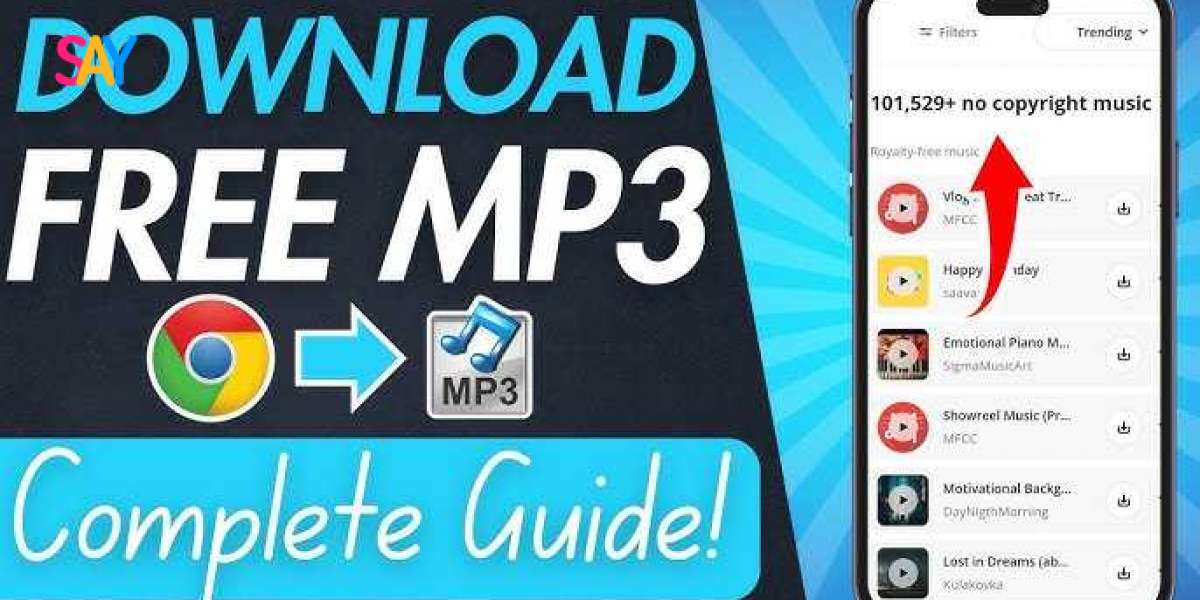Streaming has revolutionized the way we consume music, but some users still seek offline access through MP3 downloads. This brings us to a legal gray area—is it legal to rip MP3s from streaming sites like YouTube? In this article, we’ll explore the legal implications of YouTube to MP3 conversion, copyright laws, digital rights management, and what you need to know to stay on the right side of the law.
Understanding MP3 Ripping from Streaming Platforms
What Is MP3 Ripping?
MP3 ripping is the process of converting digital audio—often from streaming platforms—into downloadable MP3 files. Websites and tools like YouTube to MP3 allow users to paste a video link and convert the audio into an MP3 format, which can then be downloaded and saved locally.
Why Do People Rip MP3s?
There are various reasons people rip MP3s from platforms like YouTube:
Offline listening without internet access
Avoiding ads or subscription fees
Archiving rare or unreleased content
Educational or remixing purposes
While the intentions may seem harmless, the legality depends on several factors.
The Legal Landscape: Copyright and Streaming
Copyright Basics
Copyright laws protect the rights of creators, including musicians, video producers, and content platforms. When a song or video is uploaded to a site like YouTube, it is typically protected under copyright, unless otherwise specified (e.g., public domain or Creative Commons licenses).
Streaming vs. Downloading
Streaming is typically licensed—platforms pay royalties to artists and labels for allowing users to play content. Downloading, especially without permission, bypasses this system and potentially infringes copyright.
Ripping MP3s from YouTube essentially turns a licensed stream into an unauthorized download, which can breach the terms of service and copyright laws.
Is It Legal to Use YouTube to MP3 Converters?
YouTube’s Terms of Service
YouTube’s own Terms of Service clearly prohibit the downloading of content without permission:
"You shall not download any Content unless you see a 'download' or similar link displayed by YouTube on the Service for that Content."
Using third-party tools to rip MP3s circumvents these terms, making it a violation of YouTube’s policies, regardless of whether you’re caught or prosecuted.
Fair Use and Exceptions
There are rare instances where MP3 ripping might fall under “fair use,” including:
Educational use
Critical commentary
Parody or remixing for non-commercial purposes
However, fair use is a legal defense, not a right. You’d need to prove it in court if challenged—something most individuals are unprepared to do.
Jurisdiction Matters: Different Laws in Different Countries
Copyright laws vary widely around the world:
United States
Under the Digital Millennium Copyright Act (DMCA), it is illegal to circumvent digital rights management (DRM) tools, which includes most stream ripping software. Even if the content is for personal use, using such tools may be considered illegal.
European Union
The EU’s copyright directive also prohibits unauthorized copying and distribution. However, private copying exceptions exist in some countries like Germany and the Netherlands, but usually require a levy system (fees paid by manufacturers of blank media or devices).
Other Countries
Canada: Allows private copying of music, but not from illegal sources.
Japan: Prohibits unauthorized downloads, even for private use.
India: Has a more ambiguous stance, but generally aligns with international copyright norms.
Are There Legal Alternatives?
If you’re looking to download music legally, several options exist:
Paid Streaming Services with Offline Options
Spotify Premium
Apple Music
YouTube Music Premium
These services allow legal downloading of music for offline use, with artist compensation included.
Royalty-Free and Creative Commons Music
Websites like:
Free Music Archive
Jamendo
Incompetech
Offer music that is either in the public domain or licensed for free use.
Purchasing MP3s
Buying digital music from platforms like:
Amazon Music
Bandcamp
iTunes
ensures both legality and artist support.
Consequences of Illegal MP3 Ripping
Legal Risks
While individuals are rarely prosecuted for personal MP3 ripping, the legal risks increase if you:
Distribute ripped files
Upload them to other platforms
Use them in monetized content
Record labels and copyright enforcement agencies have previously sued websites offering ripping services. For example, YouTube-mp3.org was shut down in 2017 after legal action by the RIAA.
Malware and Privacy Concerns
Many free MP3 converter websites are laden with:
Pop-up ads
Malware or viruses
Data collection tools
These sites often operate in legal gray zones and may compromise your computer security.
YouTube to MP3: Is It Ever Truly Legal?
It can be legal only if:
The content is not copyrighted (e.g., public domain)
The uploader has given explicit permission
You’re the original creator of the content
For example, converting your own YouTube MP3 for a podcast would be perfectly legal.
Ethical Considerations: Beyond the Law
Even if you're not legally prosecuted for ripping MP3s, consider the ethical impact:
Artists lose revenue
Platforms may raise prices or reduce free offerings
It undermines the system that supports content creation
Paying for music helps sustain the industry and ensures fair compensation.
Conclusion: The Bottom Line
Ripping MP3s from streaming platforms like YouTube is usually illegal, especially when done without permission or for copyrighted content. Even if you’re only using the MP3s for personal enjoyment, you may be violating terms of service and copyright laws.
Legal alternatives are widely available, from streaming subscriptions to royalty-free music databases. While YouTube to MP3 converters remain popular, it’s important to understand the legal and ethical implications before clicking "Download."
Stay Safe, Stay Legal:
Read the terms of service
Know your country’s copyright laws
Support artists through legal channels
If in doubt, it's always safer—and more respectful—to avoid ripping MP3s and choose licensed methods instead.




